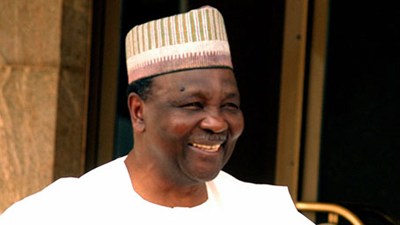Each time I read stories of Nigeria’s past, I become convinced that leadership recession and economic recession are like Siamese twins. I wonder: Why do the leaders of Nigeria fail to learn from history? One man recently told me that the reason history as a subject was abolished in Nigerian schools (until now maybe) was that some people conspired to hide the truth from the younger generations.
Well, the conspirators have failed, and they will fail again. Those of us born before the first military coup will always have stories to tell the younger ones. It’s unfortunate the stories are almost always sad ones. My generation in Nigeria is perhaps the most traumatised, cheated and dehumanised. That’s why I’ve always regarded the generation of Nigerians that fought a civil war as the worst in Nigeria’s history so far.
I’m commenting on Aburi today because it’s the 50th anniversary of an agreement that could have put Nigeria on the right path after the massacres of 1966. Between January 4 and 5, 1967, the leaders of Nigeria were invited to Aburi in Ghana by the country’s military leader, Lt. Gen. JA Ankrah, to head off a crisis that was brewing between Eastern Nigeria and other regions of Nigeria. After the meeting, which Gen. Ankrah did not attend but “urged the Nigerian leaders to bury their differences, forget the past and discuss their matter frankly but patiently” [I’m quoting from Emeagwali.com], everyone was satisfied that peace would be restored to Nigeria.
Head of state Lt. Col. Yakubu Gowon was then a 32-year-old while Lt. Col. Emeka Ojukwu was just 33. Of the scores of Nigerians that attended the meeting at Aburi, only Gowon, David Ejoor and Mobolaji Johnson are alive today. But the then young people made resolutions which, if implemented, would have preserved Nigeria’s federal structure and averted a civil war that killed more than 3million people. If the Aburi Accord had been implemented, all other coups and counter-coups that claimed the lives of the brightest and the best in the army wouldn’t have occurred. There would have been no need for other “national” conferences that produced the disasters that were the 1979 and 1999 constitutions. Other conferences including those of 1994, 2004 and 2014 that cost tens of billions of taxpayers’ naira (but have been ignored) wouldn’t have happened. June 12 would have been a myth. And Nigeria wouldn’t have been in the sorry state it is today.
The hawks that have damaged Nigeria existed more than 50 years ago. So when young Nigerians hear of a “cabal” or a “mafia” pulling the strings that have ruined several leaders of Nigeria, let them know that it’s nothing new. Gowon was literally hijacked when he and his team returned from Aburi. The hawks forced him to renounce all that had been agreed upon. Importation of arms and ammunition, which Ojukwu had spoken against, continued as the mafia prepared for war. There was no devolution of certain powers to the regions, as was resolved at Aburi. To further ensure that Nigeria remained a unitary state (but addressed as a “federal” republic) – the primary reason for Supreme Commander JTU Aguiyi-Ironsi’s assassination was Decree 34 of 1966 – Gowon went ahead to divide Nigeria into 12 unequal states.
Ojukwu had no choice. Pressured by his own people, he declared the Federal Republic of Biafra. And Gowon went to war. The rest is history. But Nigeria has not recovered from the violation of the Aburi Accord. That violation has begotten many more violations to shape Nigeria into the monster it is now: We remember that Gowon reneged on a promise to return Nigeria to civil rule in 1976. A clique that “owned” Babangida dribbled Nigerians several times, resulting in the “annulment” of a free and fair presidential election and truncating the Third Republic. Then, Abacha happened on Nigeria! And Obasanjo again!
When an agreement has been reached, it must be respected; it’s a matter of honour. In the same breadth, a country’s constitution must not be violated. Court judgements must be obeyed. Anything outside of these civilised norms belongs to autocracy – high-handedness, arbitrariness, chaos. It can only lead to one place: doom.
Nigeria is crying for reforms in virtually every sector. Can’t our leaders today simply dust up the Aburi Accord and the subsequent conferences (especially that of 2014) so the country can have a new lease of life? It’s crazy to ignore the loud calls for true fiscal federalism; the current arrangement is not working. We might decide to postpone the great day of reforms until oil is discovered in the Chad and Gongola basins, but reform must come someday.
The cabal is fighting in vain. The wrong steps taken since Aburi are the true causes of Nigeria’s current economic recession – and soon economic depression – from which it may never recover. Nigeria is trapped in unworkable political and economic structures because of a few selfish people who confuse those in the corridors of power. Why wouldn’t there be a recession where fewer than 1, 500 idle “leaders” consume a third of resources belonging to 180million people? We have multiplied offices in 774 local government areas and in 36 states, yet nobody is engaged in actual production of goods and services.
During the civil war, the rallying cry in the east was “On Aburi we stand!” Now, it’s no longer a Biafran affair. Until we return to Aburi, Niger Delta militancy will not cease and Boko Haram will not be defeated. Agitations for a sovereign national conference will not end. The younger generation is growing more impatient.
–By ANIEBO NWAMU
+234-8054100220 (SMS only)











